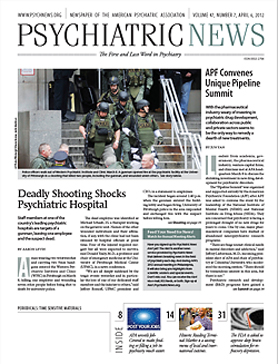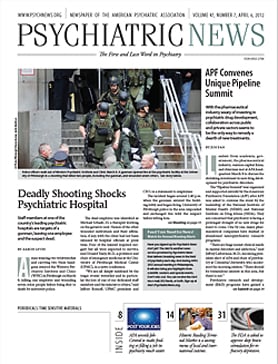There has been considerable interest and focus on childhood autism and autism spectrum disorders (ASD) as a growing “epidemic,” but relatively little work has been conducted to date on adults with ASD. Despite this relative neglect, children with ASD for the most part grow up to become adults with ASD. Much of the therapeutic literature has addressed early educational or psychosocial interventions, since it was presumed that a developmental window existed and that later interventions might not alter the developmental trajectory of the illness. Also, pharmacological treatments for ASD tended to focus on associated symptom domains such as disruptive behaviors or aggression and self-injury, since it was felt that the core symptoms of the illness such as repetitive behaviors or social cognition deficits could not be directly targeted with treatment.
Recent work, however, is starting to accumulate suggesting that adults with ASD are much more common than previously believed and that many high-functioning young adults may be found in mainstream settings such as college or the workplace, rather than solely in special-education and residential settings. Evidence is also beginning to suggest that adults with ASD may actually respond differently from children with ASD, and that the disorder itself may not be irreversible in adulthood. There has also been increased interest in conducting treatment studies in adults with ASD, since new compounds based on novel molecular mechanisms require initial study in adults prior to study in children. Also, high-functioning adults have the capacity to give informed consent for studies, and there are no treatment alternatives that exist for this population.
We have recently shown that adults with ASD may improve in the symptoms of repetitive behaviors when treated with the selective serotonin reuptake inhibitor (SSRI) fluoxetine compared with placebo, and that improvement in this core symptom domain of ASD may also be accompanied by improvement in global severity. This finding in adults stands in contrast to the finding that children with ASD do not improve when treated with the SSRI citalopram compared with placebo. Recent work in animals and humans also suggests that modulation of the centrally active peptides oxytocin and vasopressin may improve social cognition symptoms and that the social cognition system may be favorably impacted at various developmental stages.
It has become increasingly clear that there is no single gene that has a major effect in causing autism, but rather that perhaps hundreds of different genetic variants contribute to the development of ASD in specific individuals, perhaps through a few final common pathways such as synaptic and systems connectivity. Much recent work has shifted to study how the environment may play a critical epigenetic role in determining which genes are turned on or off and how this may serve as the basis for developing novel treatments to reactivate these quiescent brain systems. Understanding the boundaries of the broader autism phenotype and how these symptom domains present and continue to evolve in adulthood will be critical to the development of new treatments for this misunderstood illness.



